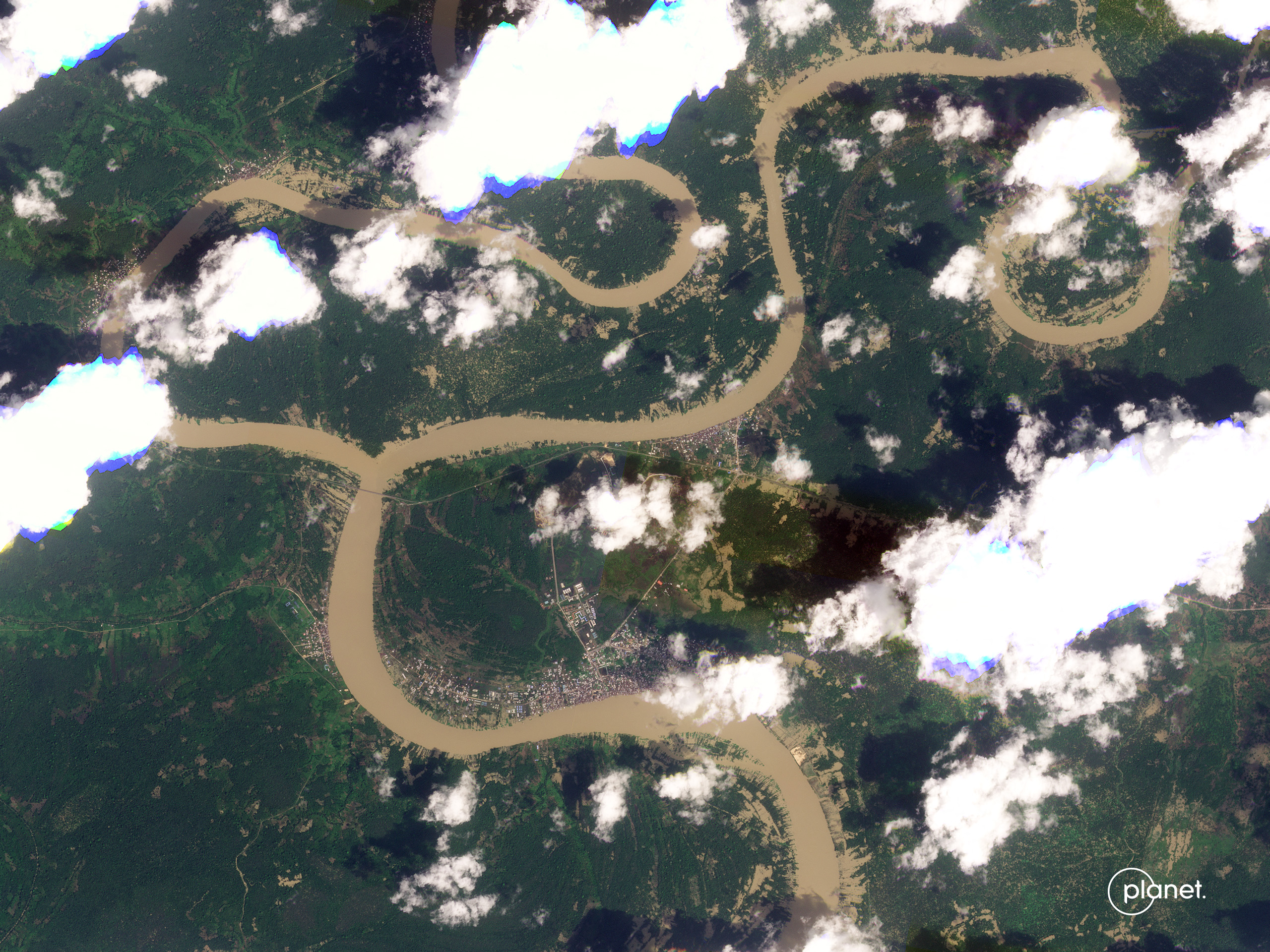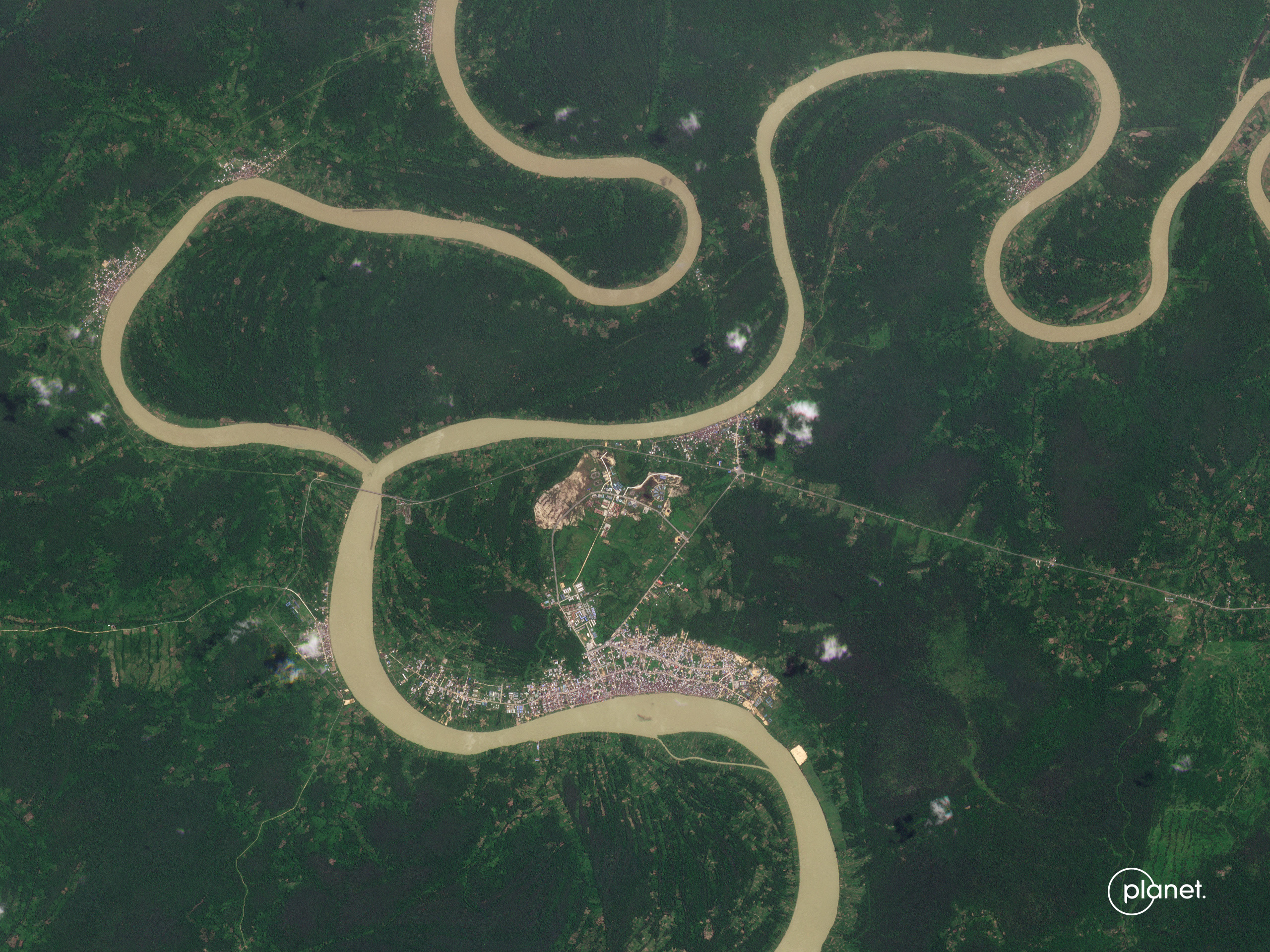Bayelsa Residents Live In Crowded Classrooms After Losing Homes To Flood
While mourning those whose lives were cut short by the recent flooding, Bayelsa residents in South-south Nigeria remain homeless.

For three weeks in October, Tuboulayefa Zige had to squat at Yenegwe Secondary School in Bayelsa, South-south Nigeria, following the flood that caught most residents of the state unaware.
It was a horrible experience, she says, one that has set her and her family back, and has cost them a great deal.
Zige, whose husband works as a police officer in Southeast Imo State, said she was sleeping alongside her eight children on Oct. 3 when a flood forced open their main entrance.
In the blink of an eye, the entire three bedrooms were submerged in water. When she checked through the window, she saw her neighbours running helter-skelter to save what they could of lives and properties.
Zige woke her children to start packing out some of their properties but their efforts were useless. They needed to run for their lives.
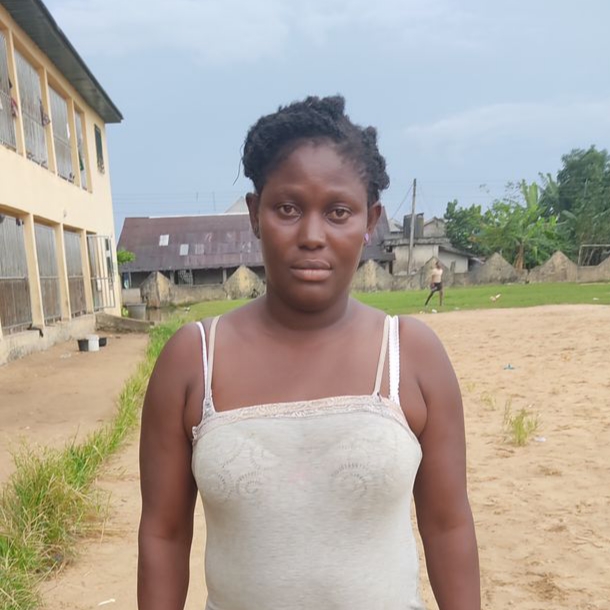
The flood did not only render them homeless, it also worsened the family’s socio-economic condition. Feeding her children during the period was terrible. They could only rely on things supplied to displaced residents by government officials and non-profit organisations. These were insufficient to go around.
Zige explained that the only option for many residents affected by the flood was to seek refuge at Yenegwe Secondary School or travel out of the state to live with their distant relatives.
Since many houses were sunk in water, over 100 displaced persons occupied some of the school’s classrooms, thereby forcing the management to pause the academic calendar.
“Life has not been easy. I lost my cassava and yam farms. I hadn’t made any harvest when they were destroyed by flood. My children could not even go to school because we only feed on my husband’s salary.”
Up to 1.3 million people affected by flood in Bayelsa
Bayelsa State is sitting on the confluence of rivers in the South-south region of Nigeria, and it is said to be one of the worst impacted states by the recent flooding disaster in the country.
Many communities, especially those located along the banks of rivers, were destroyed, with many lives lost in various parts of the state.
On Nov. 7, Bayelsa State Emergency Management Agency (BYSEMA) said that at least 1.3 million people were affected by the recent flooding. While 96 deaths were recorded, about 1.2 million people were displaced.
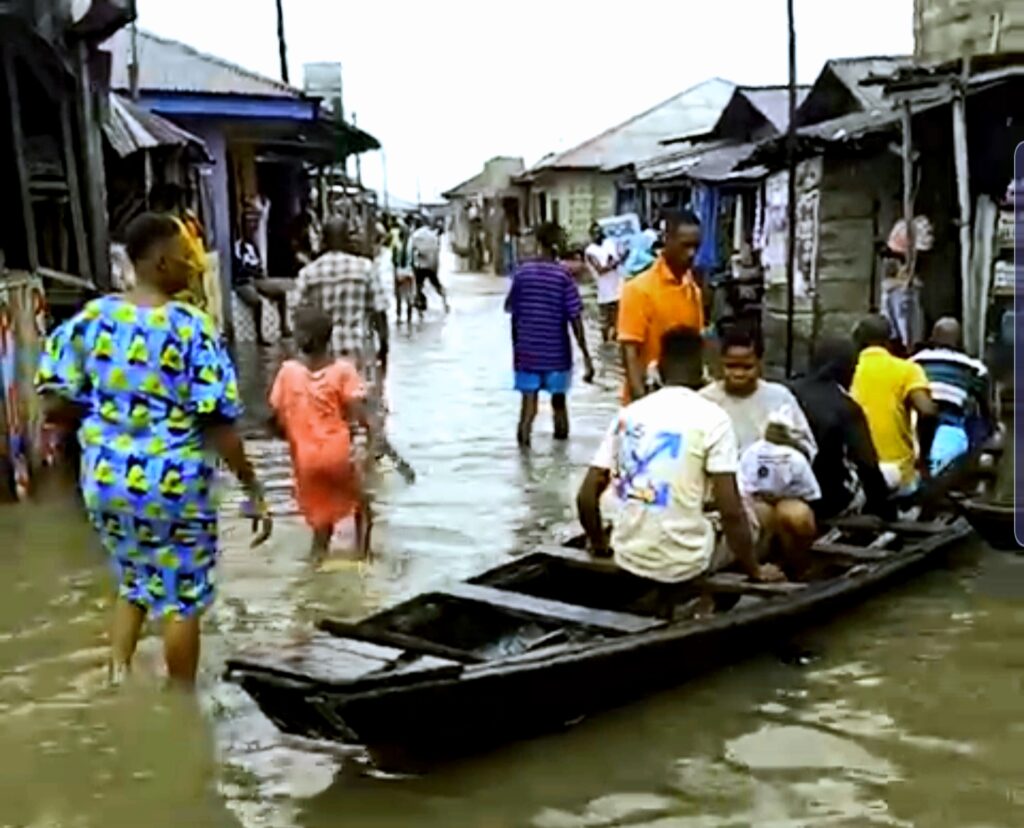
“As of November 4, 96 deaths were reported with Yenagoa local government area being the worst hit. The flood affected a number of farmlands, school buildings, health structures, and other facilities. The flood also affected some 300 communities across the eight LGAs of the state.
“Preliminary reports and data available to SEMA and other agencies indicate that Bayelsa remained the most flood impacted among states in the country,” said Walamam Igrubia, BYSEMA chairman.
Residents told HumAngle that although the flood has subsided in several communities, they are left with houses that were completely destroyed and many farmers are left to battle for survival.
Life in crowded classrooms
Mubo Alabi was staying in a two-bedroom flat before the October flood caught them unaware. Having lost all her properties to the disaster, she brought her five children to Yenegwe Secondary School.
“I was displaced with my children and neighbours. We were about 15 staying in a classroom. My husband is a bricklayer so he was not around when the flood happened. But what can we do? Life goes on. The money from my business is finished. I will be needing capital to start all over,” she said.
Mubo said her farm produce, particularly her plantain, were destroyed. She had yet to harvest her cassava as well, it will all be a complete loss.
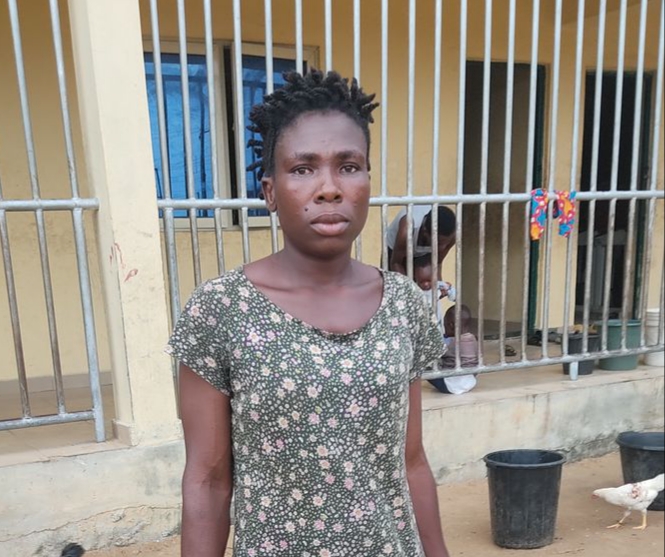
“I never knew a flood was coming. The cassava farm is five plots of land and I used two plots for yam and plantain. The flood swept everything away. I became sick as a result of that.”
The displaced residents also told HumAngle that their presence in classrooms across Yenegoa compelled schools to shut down as many chairs and tables got broken daily because they were littered with broken furniture, fish, cooking pots and other home gadgets that were saved from flooding by displaced people while vacating their homes.
In reaction to this, an educationist, Taiwo Adebiyi, charged the government to make adequate plans in ensuring that IDPs do not defeat the purpose of schools, which is for teaching of pupils and students.
Economic woes
During the flooding, roads and bridges were cut off, including the east-west road which is the access point to and from the state between Ughelli and Patani in Delta State, as well as Okogbe and Ahoada in Rivers State.
The development, however, affected prices of food and vegetables as they were inflated even at IDP camps. This was also the same with the price of fuel.
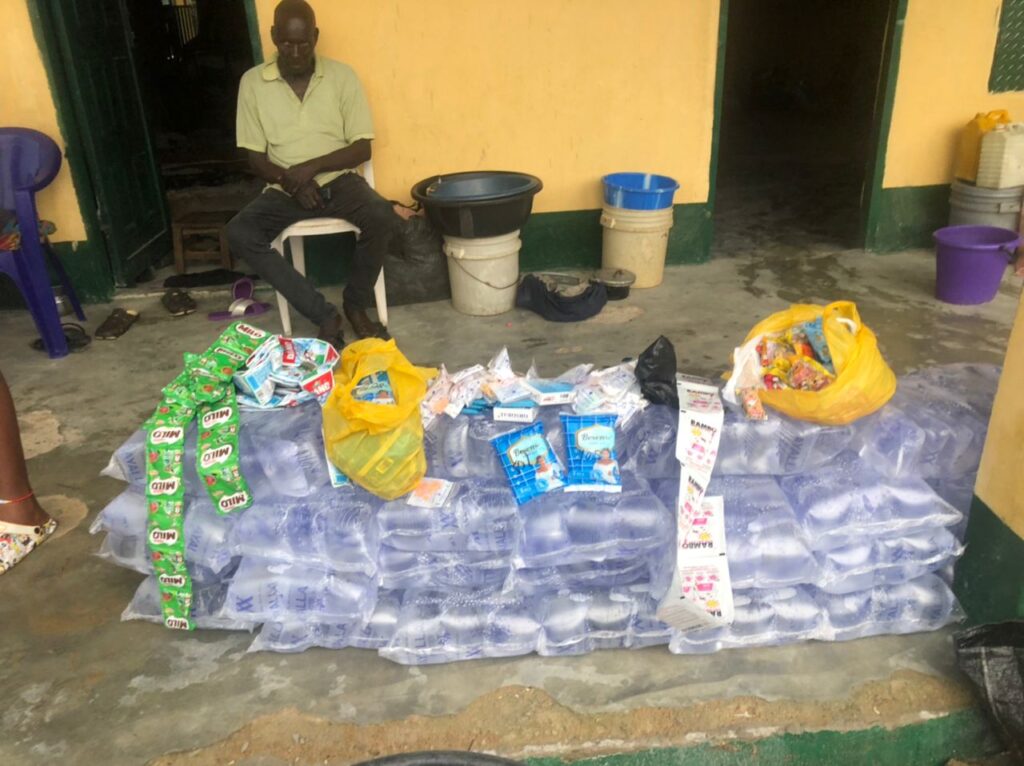
“Since we are unable to get food, the ones available were hiking. There is no road except you choose waterways, so we were forced to buy things at inflated prices,” said Ikechukwu Chistopher.
According to a report by the National Bureau of Statistics (NBS) in October, Nigeria’s inflation rate hit a 17-year high on the back of soaring food prices and supply chain disruption in September.
The Consumer Price Index (CPI) report released by the NBS said inflation rose by 20.8% in September, the highest rate since 2005. On a month-on-month basis, the index rose by 1.36% compared to the 1.77% increase recorded in the previous month.
According to the report, food inflation rate stood at 23.34% on a year-on-year basis, recording a surge from the 23.12% recorded in the previous month.
Like food, the data revealed that in September, Nigerians across the country paid as much as N191.65 per litre of petrol, also known as premium motor spirit (PMS). The average price paid for petrol in September increased by 1.15% from N189.46 which was the price per litre of petrol in August 2022.
Apart from Kano and Jigawa, Bayelsa residents paid the highest prices for petrol within the month at N204 per litre, report shows.
Authorities at loggerheads
While residents battle to recover from their losses, the Bayelsa State Government seems to be at loggerheads with the Federal Government as Governor Douye Diri, expressed displeasure over alleged failure of the former to support the state during the devastating floods.
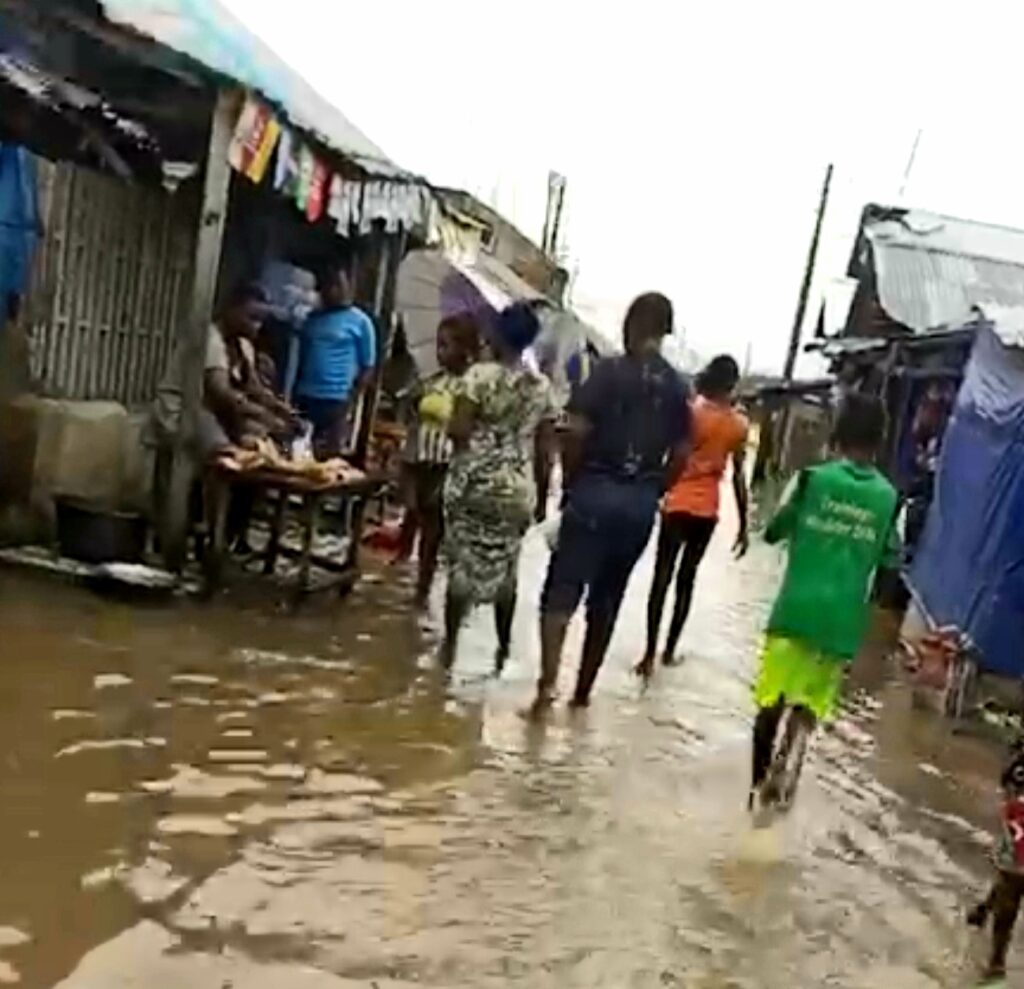
This was after Minister of Humanitarian Affairs, Disaster Management and Social Development, Sadiya Farouq, said “Bayelsa is not among 10 worst-hit states” by this year’s flood disaster.
But authorities in Bayelsa rejected the minister’s assertion. Not pleased with the Minister, Bayelsa Information Commissioner, Ayiba Duba, in a statement said “the minister’s claim is disheartening but not surprising. The slow response to the humanitarian crisis arising from the flood despite the President’s directive for her to come to the aid of the state is indeed a confirmation of our belief that the ministry and its agencies have abandoned their responsibility and are not interested in managing the disaster.”
As the governments continue to fight over their responsibilities, residents are hopeful that they will recover their destroyed properties with hard work.
Support Our Journalism
There are millions of ordinary people affected by conflict in Africa whose stories are missing in the mainstream media. HumAngle is determined to tell those challenging and under-reported stories, hoping that the people impacted by these conflicts will find the safety and security they deserve.
To ensure that we continue to provide public service coverage, we have a small favour to ask you. We want you to be part of our journalistic endeavour by contributing a token to us.
Your donation will further promote a robust, free, and independent media.
Donate HereStay Closer To The Stories That Matter

